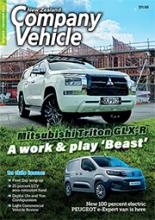No element of fleet management raises more basic questions than financing or more specifically, which is better: leasing or buying vehicles for the fleet?
The answer is simple but with complex considerations. The simple part is that the answer depends on the financial stability of the company asking the question.
For some companies with solid capital and robust financial stability, the tax benefits of owning vehicles can be attractive considerations.
For this reason, vehicles which most would consider financial liabilities by those outside the organisation in question are referred to and regarded as ‘assets’ which will at the end of their useful life, result in a certain amount of returning cash.
In reality, the returning cash inflow is considerably less than the initial outlay, but a company with solid financial credentials can weather the hit.
Some situations exist where vehicle ownership is the best bet. Vehicles which require extensive modification to make them fit for purpose are good candidates for bought vehicles. Vehicles which travel large distances and accrue higher mileages are also prime purchased vehicles.
Vehicles with less than gentle drivers or which work in demanding conditions are probably better off owned than leased and vehicles which are likely to be in service longer than three years – a standard turnover time for a fleet – are certainly a better proposition as a purchased vehicle.
Companies with less robust financials, however should be looking more at financing or leasing vehicles as these options offer greater flexibility, less initial outlay, increased ability to use capital in other areas of the business, reduced risks associated with vehicle ownership and large debt servicing, is a tax deductible consideration, offers fixed vehicle maintenance costs and avoids the costs of maintaining older vehicles while allowing the business to maintain a fleet of contemporary vehicles as just some of the advantages.
While you think about which option best suits your fleet requirements based on the above considerations – your next step is to look at your financial situation with your accountant, financial advisor or primary financial institution and determine your ability to fund your fleet vehicles.
Lease companies tend to operate on a monthly basis – monthly repayments, total months in time terms – so work out your how much you can spend on your vehicle(s) on this basis.
Do this BEFORE you determine what vehicles you want your fleet to consist of, ie before you are tempted by the latest and greatest vehicles out there.
Once you have some basic numbers to deal with – and we suspect the bulk of our readers will be looking down Leasing Lane rather than Buying Boulevard – then it’s time to start looking at leasing providers.
More research. Not all lease providers are the same, although their primary portfolio of services includes commonly named products like finance leases, operating leases, maintained operating leases, non-maintained leases or fully maintained leases.
The most common are operating leases, where the vehicle remains the property of the owner with the lessee effectively renting the vehicle for a period of time, or finance leases where ownership of the vehicle may transfer to who leased the vehicle at the end of the lease term.
It should also be noted that under a finance lease, the residual value of the vehicle is the responsibility of the lessee to make at the end of the contract.
Finance leases are the easiest to understand but typically offer the least amount of ‘extras’ which make leasing such an attractive offer for the busy fleet owner and tends to keep the lease costs low.
A finance lease also makes it challenging for the lease provider to ensure an ongoing relationship with the business taking on the lease since the vehicle’s ownership stays with the provider and a new arrangement may or may not go ahead after the first term.
Here, lease providers like Honda Lease Direct have an advantage over conventional leasing providers because of the relationship they can build with and between their customers through Honda New Zealand and all leasing arrangements can all be handled internally.
As a result of this, Honda Lease Direct can lease vehicles to both private individuals as well as registered companies, offering the same leasing benefits to either. For individuals a Finance lease can often prove to be the best solution, just contact the nearest Honda store to discuss your specific requirements.
In some cases, however – and certainly for companies – the operating lease is likely the better option and this could be a maintained operating lease or a fully maintained operating lease.
The difference? A fully maintained operating lease is, as the name suggests, a set-and-forget lease where your monthly payments cover the vehicle and a host of related features such as, fuel card management, courtesy vehicle, servicing, WoF and registration with other lease company specific items – and it is a good idea to go over these with each lease company provider, or in Honda’s case,
In the case of Honda Lease Direct, a fully maintained lease has five specific features, not least of which is the very attractive ‘Honda model up’ upgrade.
Over the course of the lease term, if the value of the vehicle exceeds the value owing on the contract, you can upgrade the current leased vehicle into a brand new one with a new lease contract.
“We have found,” says Carl Kenworthy of Honda Lease Direct, “that our customers who have chosen Honda for its innovative vehicle product, are finding our innovative leasing programmes just as attractive.
“Some of what we offer is similar to other lease companies, but like our fair and equitable Price Promise where the purchase price of any given Honda is the same regardless of which dealership you visit, a principal which demonstrated transparency and respect for our national network of dealers and customers alike, we have developed Honda Lease Direct products in the same way.
“In fact, we have five distinct elements of our fully maintained lease product which resonate really well with our customers who recognise the value of not only our range of vehicles, but also the value of choosing Honda Lease Direct as their lease provider of choice.”
And once you are ready to choose your lease partner, don’t forget to look at the total cost of ownership of the vehicles you are interested in.



